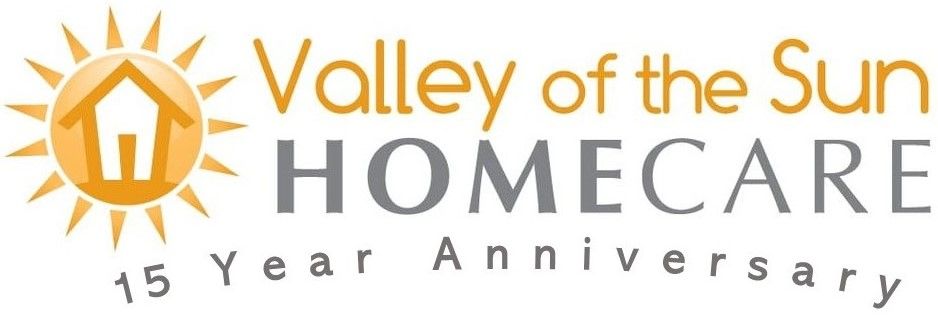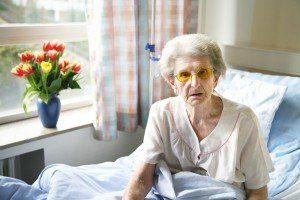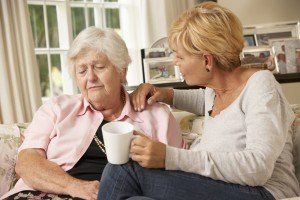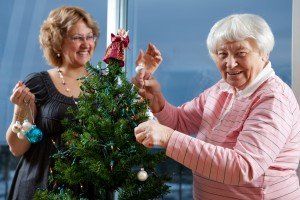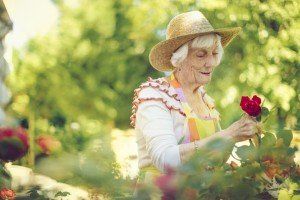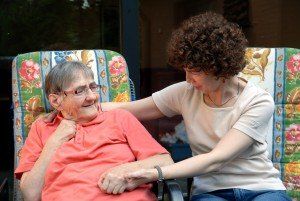
Blog
If you're a family caregiver, adult child of an aging parent, or simply seeking reliable information on senior health and wellness, the Valley of the Sun Homecare blog is here to help. Our expert-curated articles cover everything from memory care to seasonal safety tips, grounded in real-life caregiving experience and trusted local resources.
Hospital Delirium: The Little Known Danger for Seniors
As difficult as a hospital stay may be, we’re at least somewhat comforted by the fact that we’re in the right place where we’re going to get the help we need to be healed or to get well. Or are we? For seniors in particular, a surprising effect of hospital stays is becoming more and more prevalent: hospital delirium.
Termed “ICU psychosis” by geriatrician Sharon Inouye of Harvard Medical School, hospital delirium is both “underrecognized and underdiagnosed.” And perhaps even more disturbing, as much as 40% of the time, this condition is preventable in the elderly – caused simply by the bright, noisy environment that inhibits sleep, or a particular type of treatment they’re receiving, such as narcotics or anti-anxiety medications.
Researchers are finding that the longer the hospital stay, the stronger likelihood for patients to develop hospital delirium. And the effects can be both long-lasting and severe. A full 80% of adult ICU patients showed markedly lower cognitive test results than normal (based on age and education predictions), even though only 6% had any cognitive impairment prior to their hospitalization. And a full two-thirds of the patients displayed an impairment that mimicked what would be expected in someone with mild Alzheimer’s disease or even a traumatic brain injury.
moreElderly Care: The Holidays Are Over. What’s Next for Your Senior Loved One?
January 9, 2017
Spending time with loved ones over the holidays is priceless, in more ways than one. Not only does it provide the opportunity to create treasured memories that will last a lifetime, but it also gives family members the opportunity to check in on one another to ensure health and wellbeing. This is particularly true for elderly loved ones living independently; and it’s often during holiday visits that family members discover concerns that may raise questions about the need for elderly care assistance.
In an effort to help families keep their senior loved ones safe, we offer the following warning signs that a senior may be in danger of injury or that care needs are not fully being met:
- Unintentional weight loss or gain
- An understocked pantry or fridge
- Outdated or spoiled food
- A decline in the level of cleanliness in the home
- An increased amount of clutter, particularly in walking areas
- Problems with sleeping too much or not enough
- A change in hygiene level
- Memory lapses or confusion
- Agitation or anxiety
- Bills that haven’t been paid and mail that’s accumulated and unopened
- Scorch marks on countertops, pots or pans
- Burns, bruises, or other injuries
- Damage to the senior’s vehicle
Helping Seniors Safely Deck the Halls This Holiday Season
December 19, 2016
What’s more fun than holiday decorating? At Valley of the Sun Homecare, we’d say helping seniors with holiday decorating! The nostalgia experienced in carefully unpacking each precious ornament, and the memories evoked with lovingly placing each piece are priceless.
We also know, however, that there are a variety of dangers inherent with the holiday season, and it’s our mission to make sure older adults remain safe at all times. These tips, courtesy of the U.S. Consumer Product Safety Commission, are a great place to start in helping seniors, and family members of all ages, to enjoy the holidays without experiencing danger:
Tree Safety
- If using an artificial tree, be careful to choose one that’s labeled as fire-resistant.
- For fresh trees, check to make sure the needles are firmly in place.
- Be sure to set trees up far away from any sources of heat.
- Do not place trees in high traffic areas, and be sure secure them to the wall or ceiling with thin wire to keep them from tipping over.
Light Safety
- Be sure that strands of lights are marked as having passed inspection from an independent testing lab.
- Discard any damaged light strings, particularly if wires are frayed or bare.
- Attach no more than three strands of lights to a single extension cord.
- Never leave lights on when leaving home or going to bed.
- Make sure that cords are safely out of the way of foot traffic to avoid tripping and falls.
- Candles pose a tremendous safety risk for seniors, and we don’t recommend using them at all during the holidays, or at any time of year. Instead, consider using electric or battery-powered candles. They are safer, and many can be set to timers to automatically turn themselves on and off.
Giving the Gift of Care: How Elderly Care Can Help Seniors Enjoy the Holidays
December 8, 2016
Fruitcake? A pair of socks? Another knick-knack for the already overloaded mantel? Trying to think of the perfect holiday gift for a senior loved one seems to get more challenging as each year goes by. What would be the best way to show your deep love and appreciation for someone who’s given so much of herself throughout her lifetime?
At Valley of the Sun Homecare, we’d like to propose something different this holiday season for a senior who means the world to you: the gift of professional in-home elderly care. Here are just a few ways home care can make a lasting difference in the life of a senior:
- Keeps seniors active. It’s easy to fall into a more sedentary lifestyle when the effects of aging make it difficult to get out and about. Caregivers are experienced in providing encouragement and motivation for older adults to participate in physician-approved exercise programs, engage in fun pastimes and activities, and even provide safe transportation and accompaniment to allow them to visit friends, attend religious services, and enjoy events in the community.
- Enhances socialization. For many seniors who’ve experienced loss of friends in later years, feelings of loneliness and isolation are common. Valley of the Sun Homecare’s elderly care experts form a bond with the seniors in their care, providing them with a friendly companion for meaningful conversations, reminiscing, laughing together, playing cards and games, and more.
- Improves overall health and wellbeing. With a professional caregiver on hand to pick up prescriptions, provide reminders to take medications as prescribed, transport seniors to medical appointments, and note any changes in condition that can be reported immediately to the doctor, health and wellness are enhanced.
Breathe Easier with These COPD Tips | Scottsdale Home Healthcare
November 21, 2016
Taking a deep, cleansing breath can relieve stress, help us relax, reduce pain, and even create a better acid/alkaline balance in our bodies. But for those with COPD, the thought of breathing deeply can have the exact opposite effect: inducing feelings of anxiety about the coughing and wheezing to follow.
In fact, COPD fears can create a vicious cycle that can actually exacerbates symptoms:
- The senior with COPD is so concerned about engaging in any activities that might cause symptoms to flare, she avoids them altogether
- Reduced activity leads to weakened muscles
- Muscle weakness results in more breathing problems, causing feelings of depression or despondency
- Depression causes the senior to limit activities…and so on
In celebration of COPD Awareness Month, Valley of the Sun’s Scottsdale home healthcare experts want to help COPD patients learn to breathe easier, lessoning symptoms of flare-ups and creating a new cycle of better health.
These two breathing techniques are especially helpful for those with COPD:
moreScottsdale Home Care Tips for Staying Active with Alzheimer’s
November 10, 2016
In just the time it took you to walk out to your car this morning, another person was diagnosed with Alzheimer’s – joining the more than 5 million others struggling with the disease. Since November is recognized as National Alzheimer’s Disease Awareness Month, we at Valley of the Sun Homecare want to help seniors with Alzheimer’s, and those who care for them, to experience the highest possible quality of life. Remaining physically and mentally active is of paramount importance, and these tips can help:
Sadly, many seniors with dementia begin to live much more sedentary lives. But the benefits of appropriate exercise for those with dementia far outweigh any potential concerns, including improved sleep, mood, confidence, self-esteem, and cognition, in addition to reduced risks of health problems such as heart disease, high blood pressure, osteoporosis and even cancer. Check first with the senior’s physician for approval, and then try the following to keep your loved one with dementia physically fit:
moreAge-Related Fears that Home Care Helps Seniors Avoid
October 25, 2016
It’s the time of year when fears – all in good fun – are everywhere we turn. Stores are brimming with ghosts, ghouls and goblins; from costumes for kids and pets to spooky home décor. Normally friendly neighborhoods are suddenly draped in cobwebs, pumpkins carved into grimaced faces, and witch brooms parked beside front doors.
While we fully accept, and even enjoy, this temporary frightening reality, one area in which we should never have to be afraid is aging. Although today’s seniors may indeed imagine a cauldron of scary aging scenarios, Valley of the Sun Homecare is here to provide reassurance with two magic words: home care.
A professional and reputable home care agency, such as Valley of the Sun Homecare, can turn the following common fears of aging into opportunities for growth and a renewed zest for life:
- Loss of independence. While it’s true that in later years, many seniors need to stop driving for safety’s sake, home care agencies provide safe, reliable transportation and accompaniment services, all according to the senior’s preferences. If a senior enjoys grocery shopping and lunch out every Friday afternoon, faithfully attending religious services each weekend, and visiting with friends for a weekly card game, these routines, along with impromptu outings, can easily be arranged so that seniors stay active and engaged.
- Loneliness. The loneliness experienced by seniors who find themselves homebound, or who’ve lost friends and family members as they age, is eased with the friendly, compassionate companionship of a professional in-home caregiver. Agencies can carefully match clients with caregivers according to personality types, interests, and more, ensuring a close bond unlike any other.
- Depression. Depression is a real threat for the elderly, who may be struggling through chronic illnesses, recovering from a fall that resulted in a hospitalization, or are facing other challenges in life. Home care agencies such as Valley of the Sun Homecare can help seniors receive the medical care they need to treat clinical depression, pick up prescriptions, prepare meals and assist with light housework, participate in enjoyable activities and more to help seniors focus on recovery and rediscovering the joys of life.
Planning Ahead for Long-Term Care Following a Parkinson’s Disease Diagnosis
October 4, 2016
A diagnosis of Parkinson’s disease is the first step in a long journey in which the scenery can change from one day to the next. Navigating each step is much easier with a caring support system – both for the Parkinson’s patient and for the family providing his care. And what better source for support than those who are walking that same path?
Valley of the Sun Homecare understands the importance of long-term care planning in chronic conditions such as Parkinson’s disease, and shares the following tips compiled from families who are also working their way through life with Parkinson’s:
- Plan early. Putting together a plan for the major decisions that need to be made, according to your loved one’s wishes, is easiest when done as soon as possible following a diagnosis of Parkinson’s disease. Think through financial planning, discuss home health care, and make sure a will and other legal documents are in order. It brings a feeling of relief to have these details handled early, and allows you to shift focus to enjoying quality time with your loved one.
- Educate yourself about the disease. Knowledge is empowering. Ask your doctor to recommend trusted resources, and arm yourself with knowledge by learning as much as you can about common symptoms throughout the progression of the disease, treatment options, sources for support, and more.
- Begin an exercise regimen. With the doctor’s approval and recommendations, encourage your loved one to stay active through exercise and physical therapy, which are shown to help with the rigidity and balance issues that often occur in those with Parkinson’s disease. And, exercising alongside your loved one can provide additional motivation and support for both of you!
- Stay flexible. Parkinson’s disease can affect each individual person differently, so keep in mind that what you learn from one family’s story will likely not exactly mirror your own. While it is important to be as fully prepared as possible for the future, it’s equally important to keep an open mind and take each day as it comes.
- Find support. As noble as it is to want to be the sole provider of care for your loved one, it’s best for both yourself and the person with Parkinson’s disease to have a team of caregivers in place, allowing for the crucial respite time away that will keep you healthy, balanced, and best equipped to provide care.
Alzheimer’s Caregivers Talk the Talk: Top Tips for Communicating with a Loved One with Alzheimer’s
September 20, 2016
Connecting with others is one of the most basic human necessities: sharing the ups and downs of life, discovering commonalities, and growing closer to those we care about. In fact, it’s so crucial to our wellbeing that isolation from relationships can result in the same negative health effects as smoking, obesity and high blood pressure.
When a loved one’s ability to communicate is impacted because of Alzheimer’s disease or another form of dementia, how can that critical connection be maintained?
Valley of the Sun Homecare’s professional Alzheimer’s caregivers have some tips to help bridge the communication gap.
- Stay upbeat. Your attitude, whether positive or negative, will come through just as clearly, if not more so, than your words. Keep your body language, facial expression, and tone of voice relaxed, friendly, and positive.
- Minimize distractions. Give your loved one your full attention, and capture as much of hers as possible – quiet the atmosphere by turning off the TV or radio, silence your cell phone, and close the door.
- Speak clearly. In a calm voice, use short and simple sentences to engage your loved one. If she doesn’t seem to understand, try repeating or rephrasing after a few moments. Using proper names of friends, family, places, etc. rather than pronouns can also help avoid confusion.
- Be patient. Allow your loved one as much time as needed to respond to you, and realize that her answer may be communicated in ways other than verbally, such as through a smile, frown or hand gesture. Understanding the feelings underneath is what’s most important.
- Use humor. Laughing together is a wonderful way to connect, and those with Alzheimer’s disease or dementia often retain the social skills associated with humor. Of course, be sure your humor is directed away from the person herself. Recalling funny stories from the past may be especially impactful.
Valley of the Sun Homecare’s Caregiver Training Improves Senior Care Services and Health
September 9, 2016
When a senior loved one needs assistance at home, families have a variety of options from which to choose. Some look to neighbors and friends for volunteer help or for recommendations on caregivers they’ve hired in the past. Others scan the classified section of the newspaper to find someone offering a low hourly rate in order to cut costs.
But statistics now confirm what we at Valley of the Sun Homecare have long known firsthand: professional, extensively trained caregivers not only provide the highest quality senior care services, but are actually keeping seniors out of the hospital.
The findings of a recent study performed by researchers at the University of California-San Francisco revealed that as many as 24% fewer seniors experienced repeat emergency room visits when cared for by workers who received one year of intensive training, and a whopping 41% fewer hospitalizations for those with caregivers who completed two years of training.
Types of training that most impact a senior’s ability to remain safe at home and avoid trips to the emergency room include:
more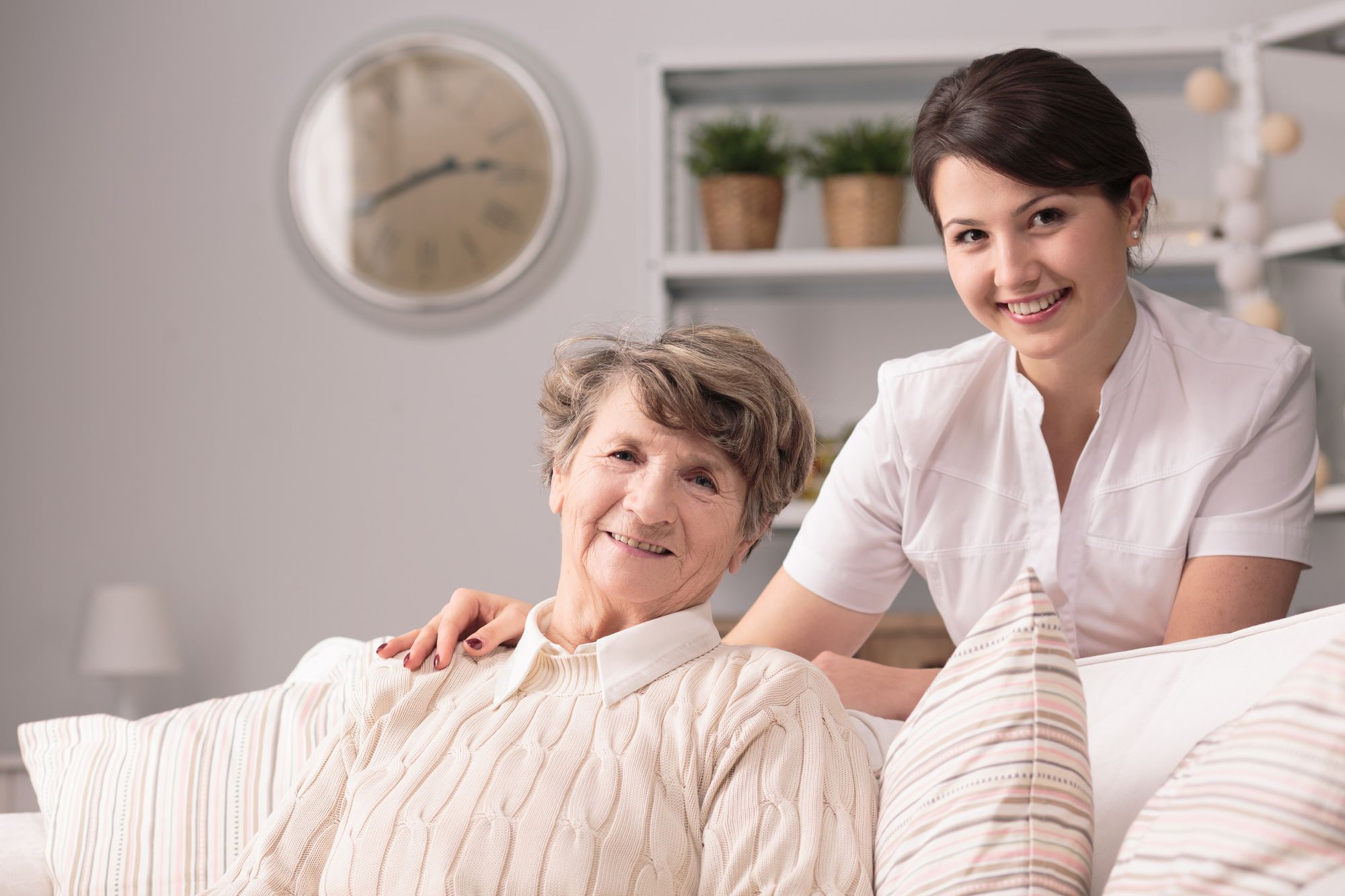
Ready to Learn More?
Let’s talk about how we can support your family.
Call us today or contact us online to schedule your free care consultation.
